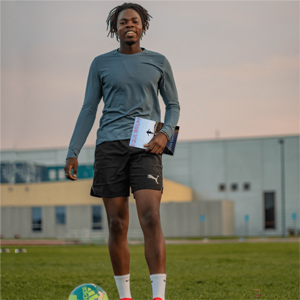Chapter 25: Exercise the Body and the Brain
Exercise the Body and the Brain
“How?”
“How do we do this?”
Are those your thoughts at this point in our Equilibrium adventure? Are you asking questions like this:
How do we apply these steps toward equilibrium in the uneven land of our society, our schedules, our health, our relationships, our culture, our climate, our finances, our futures?
Are you confessing thoughts like these:
I want to work on a retirement fund, but I’m obsessed with finishing the day.
I hope to restore and heal harmed relationships, but don’t have any more energy to invest in painful conversations.
I know I should return to church, but can’t see what good it’s done for me in the past.
I desire to grow closer to Jesus, but struggle to spend time with the Savior I don’t see or feel.
I wish to eat better and exercise more, but always begin a trend then never stay consistent.
I plan to move on from the past, but can’t get those painful memories out of my mind.
I seek to finally see a few dreams fulfilled, but doubt my abilities, my worth, my value.
Are those a few of your responses? Do those thoughts rewire all your other thoughts? Do your yesterdays control your todays and tomorrows? Do your mental stations play you songs of defeat instead of victory?
It isn’t easy to believe in the big and be faithful in the little. It isn’t simple to enjoy the journey and embrace each moment and be joyful in hope as we endure an adventure bombarded by affliction.
No, it isn’t easy. We feel off balance. We walk in a world of uneven surfaces. We process thoughts overwhelmed by rugged terrain.
But we can. Through healthy relationships with ourselves and our Healer and true friends, we can. Not doing things to earn some type of favor. Ap- plying principles like praying, pausing in our hurried world, listening better, resting well, breathing deeply, welcoming healthy relationships, selecting alone times, forgiving ourselves and those who’ve hurt us, respecting those we disagree with, seeing life’s obstacles as opportunities to move forward. Choosing to be aware of our feelings while not controlled by them. Responding to those emotions by allowing time for tears and laughter. Checking our motives on how we serve and where we serve, and when to move toward new possibilities. Grieving well. Celebrating well.
You’ve read about those in this book. Please see them as invitations toward healthy steps in life’s patchy paths. They aren’t payments for a purchase. They aren’t efforts for approval. They are methods of conversations, time spent together, and healthy applications of personal development. They are Hands to hold for balance. They are Words to receive for stability, poise, composure.
They are, if I can use this word, exercises. They are, if we see them correctly, ways our brains and our bodies take steps in the Divine Romance, in loving everybody everywhere. By giving thanks, by scheduling time for nothingness, by loving the sound of silence, by seeking help, by caring for people while not carrying their issues inside ourselves, we can find balance amid the unsteady states of life.
So, we choose. We choose to believe and receive, no matter how we feel. We choose to pursue Jesus, no matter what our minds or emotions or culture or wounds tell us to do.
We choose.
And intentionally exercising our bodies and our brains help rewire our ways of thinking. That helps us become better at selecting better choices.
How are you doing with your choosing?
Question
- Do you take care of your body? How? Why?
- Do you take care of your brain? Why? How?
- What are things you can do the right way for the right reasons to bring a better balance to your physical and mental development?
- Where is Jesus in this story?
Chris Maxwell has done it again. Another wonderful, thought-provoking collection of ideas, thoughts, and concepts to help us live better and live well. And live by the principles in the Bible. Oh, that more people would read this and heed its guidance. We might actually begin solving problems instead of creating them. Thanks, Chris, for another great book that helps us live better.

0 Comments